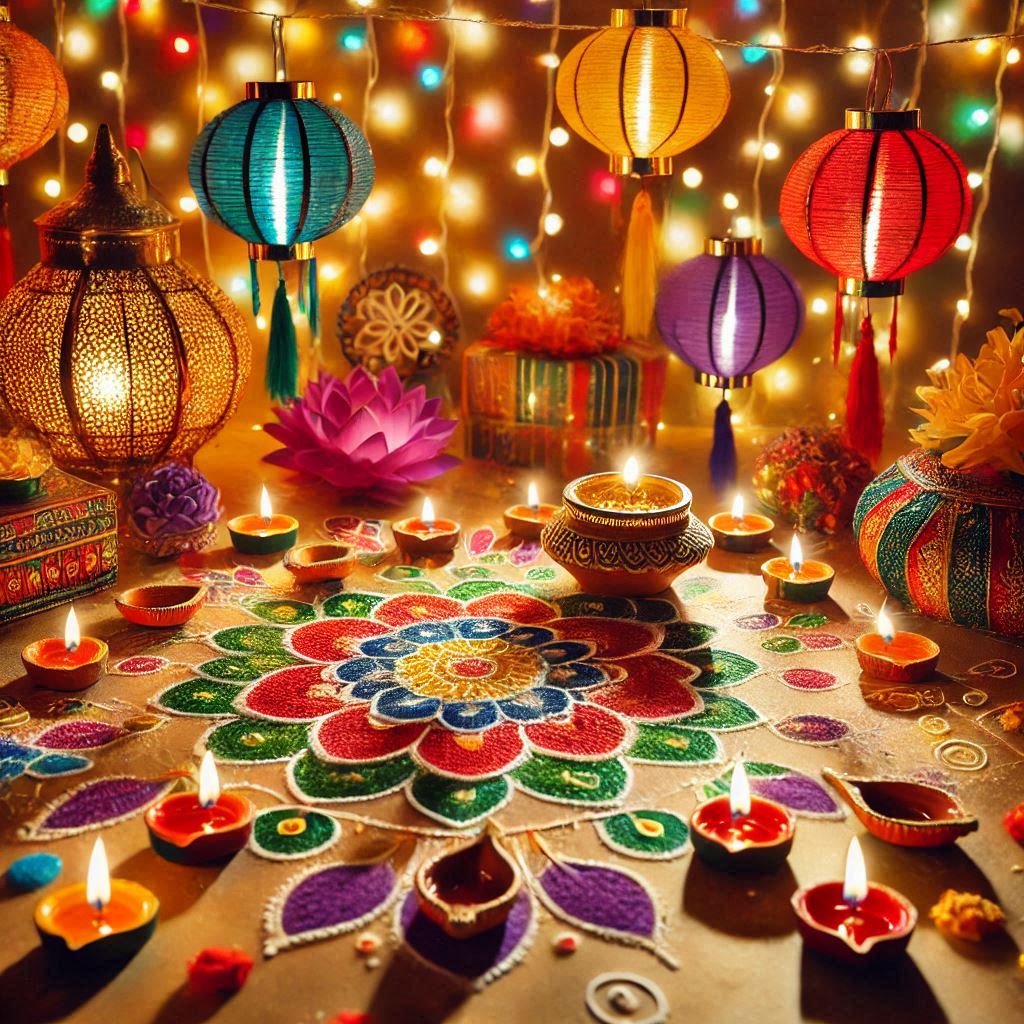7th February, 2026
A Fountain Publication

The Lodestar
Online Magazine for the Thinking Christian

Views
Christian Perspectives on Engaging with Diwali
Diwali, the vibrant "Festival of Lights," celebrates light's victory over darkness and good's triumph over evil. Engaging with its cultural beauty while navigating its theological implications is an opportunity for reflection, respect, and faithful witness
By Thangchinllian Guite on 13th December, 2024
Understanding Diwali’s Background
Diwali, or the “Festival of Lights,” is widely celebrated in Hinduism. It symbolises the triumph of good over evil and light over darkness. This five-day festival involves the worship of deities, lighting oil lamps, and sharing sweets. It marks a significant cultural event rich with historical and religious meaning. However, a Christian evaluation of Diwali must consider its theological implications, as the celebration’s foundations diverge from biblical teachings. For Christians, the worship of other gods conflicts with the First Commandment: “You shall have no other gods before me” (Exodus 20:3). In celebrating Diwali, where various Hindu deities like Lakshmi and Ganesha are revered, Christians face a theological conflict. Any association with practices honouring other gods challenges Christian doctrine, which holds that worship belongs solely to God (Isaiah 42:8). This point raises questions on how Christians can engage with Diwali without compromising their faith.
Cultural Engagement and Christian Faith
Navigating cultural participation without religious compromise is challenging, especially in multicultural societies. Many view Diwali as a cultural event, like Christmas for non-Christians, emphasising festive lights and family gatherings. Some Christians argue that participating in Diwali celebrations can demonstrate respect for others’ cultures and build relationships. However, Christian engagement with cultural festivals should be rooted in discernment (Philippians 1:9—10), as involvement may inadvertently imply endorsement of the festival’s religious aspects. An example of this is seen in Diwali’s practices, such as lighting oil lamps to invite the goddess Lakshmi into homes for prosperity. While Christians can respect Diwali’s cultural significance, participating in rituals symbolising divine invitations risks misrepresenting Christian beliefs. Thus, a balanced approach requires Christians to engage in ways that uphold their faith without disrespecting others’ traditions.
The Need for Discernment
For Christians, participation in cultural festivities calls for discernment and wisdom. Diwali, unlike secular holidays, has inherent religious practices tied to Hindu beliefs, making it harder for Christians to partake without conflict. While sharing sweets or exchanging greetings may be appropriate, participating in rituals such as lighting diyas (oil lamps) and prayers directed to Hindu gods conflicts with the Christian commitment to monotheism. Jesus emphasised that “no one can serve two masters” (Matthew 6:24), which applies here when engaging with practices rooted in different faiths.
A Thoughtful Christian Response
A Christian response to Diwali could emphasise dialogue and hospitality over ritual participation. By sharing meals or extending kind gestures, Christians can acknowledge the season's joy without engaging in religious aspects. This approach encourages Christians to show love while maintaining theological boundaries. Christians could also use this time to share aspects of their faith, respectfully explaining how they celebrate light through Jesus, who is “the light of the world” (John 8:12). By doing so, Christians can witness their beliefs in a meaningful yet non-confrontational way. Diwali allows Christians to reflect on their faith and engage thoughtfully with cultural practices. While respecting the cultural aspects of Diwali is valuable, discerning boundaries is essential for maintaining Christian integrity. Through respectful engagement and a commitment to biblical principles, Christians can approach Diwali in a way that honours their faith without compromising their beliefs. (Thangchinlian Guite, hailing from Dorcas Veng, New Lamka, Manipur, is a dedicated local church member who serves as a Sunday School teacher within the Baptist Children's Department. With a lifelong passion for writing, he finds joy in weaving his imagination into words on paper.)
Share this Article
Advertisements
Explore More on The Lodestar

Approaching God Without Fear: Embracing Honest Prayer Amid Struggles
God invites us to approach Him with every burden, no matter how raw or unworthy we feel. Honest prayers, like those of David, Hannah, and Job, are met not with judgment but with comfort and...

Living with Purpose in a Culture of Anxiety
Modern culture treats anxiety as wisdom, but Scripture offers peace through trust. If fear feels like your default setting, this blog invites you to explore a better way—one rooted not in control,...
Subscribe to our free weekly digest.
Join hundreds of others who have subscribed to our free weekly digest for inspiring news, faith, community, family, opinion, and culture content. Stay connected and nurture your spiritual growth with thought-provoking articles delivered straight to your inbox.
Join our growing community of readers today.

